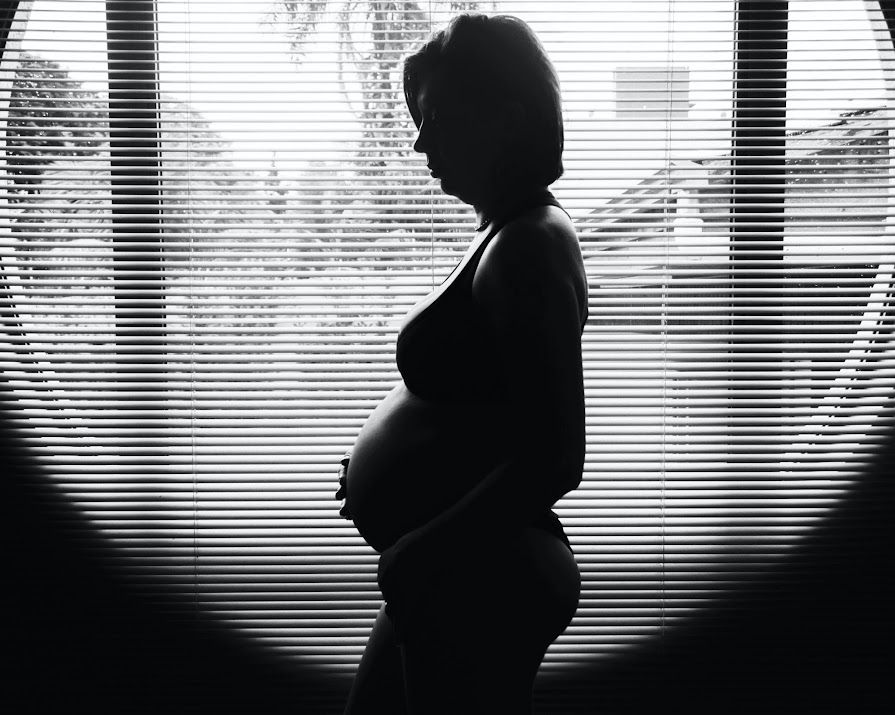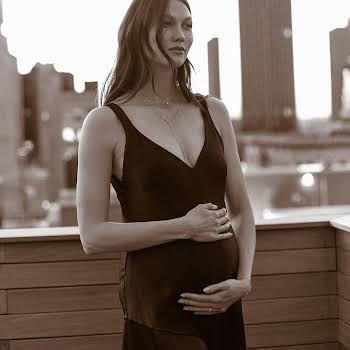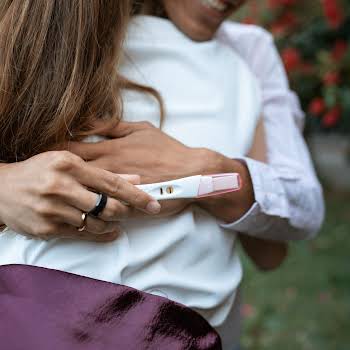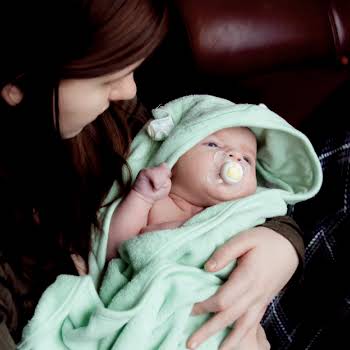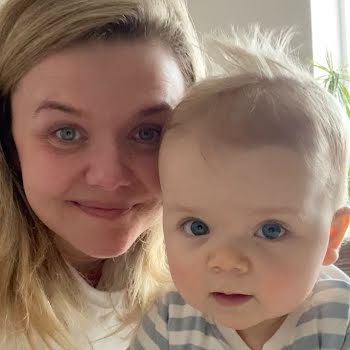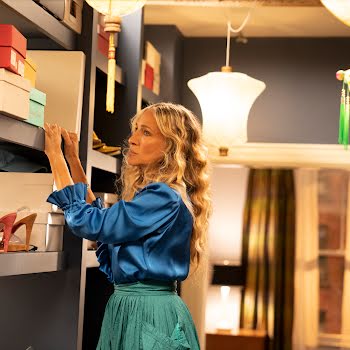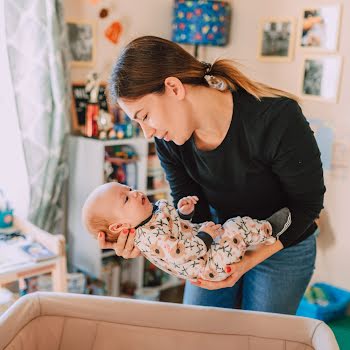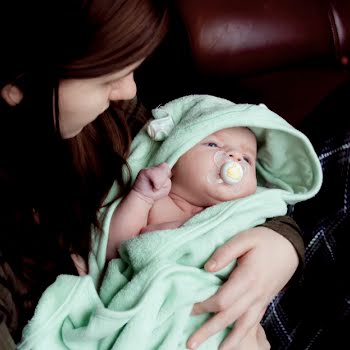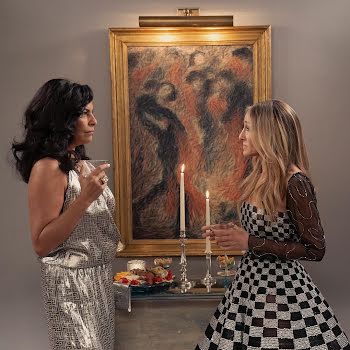
By IMAGE
After a gruelling five years of pregnancy loss, Jennifer Stevens finally gave birth to a healthy baby, but she endured a lonely, difficult journey to get there. She talks to other women and the experts to learn more about multiple miscarriages.
When my beautiful baby girl arrived in the summer of 2018, I was brought to a little room beside theatre for my section prep. My husband was whisked out to get gowned up, and I was left sitting on a cold plastic chair in my dressing gown. I started to shake, then I started to cry, and within seconds my chest was heaving and I was holding onto the table in front of me. I was in the same tiny room that I had sat in a year-and-a-half before, when I was having a D&C for the baby I had just lost. An amazing anaesthetist called Ann came in to check my chart, and as she read the notes, she glanced at me. I was looking at the floor, trying to calm myself down. It’s all in there – the hospital stays, the babies that weren’t to be, the endless appointments, and scans that showed nothing. In the kindest gesture I’ve ever known, she knelt down in front of me, held my hand, and told me that we were here for everything that had gone before and to meet my very special baby girl. Does she have a name, she asked. Yes, Mae. Let’s go meet Mae, she said.
Giving up was the kindest thing I could have done for myself. We were almost five years into a gruelling pregnancy loss journey that had taken its toll physically and mentally when we said enough is enough. There would be no more trying, no more monthly disappointments or worse, excitement that would then end eight or nine or ten weeks later.
Multiple miscarriages or pregnancy loss is a lonely place. The first one is normal; every woman knows the statistics. We’ve all heard that one in four pregnancies can end in a loss. We’re almost braced for it. People are devastated for you, if you tell them at all. Those first twelve weeks of silence are a prison for women. Trying to get through the first bit of pregnancy without telling anyone. Masking sickness and trying to work through sometimes debilitating tiredness. If you haven’t told anyone you’re pregnant, should you tell them that you’re not anymore? But the people you do tell cry with you and tell you the stats again and say that next time is your time, that it’s probably a blessing, really – it’s the body’s way of telling you everything isn’t okay. The second miscarriage is harder. You’re out of the normal range now, and you start to suspect that something is wrong. But doctors still don’t really want to engage because two is normal enough, and there’s no real sign that there’s a problem. The third one means that you can be referred now. Three means there is a problem. You have confirmation that it’s not normal. You start not wanting to tell people because it just seems too unlucky, too sad. And the fourth, that’s just devastating.
Six months after giving up, there was a positive test. It didn’t hit me like the ones before; it was fine, I was coping, but week after week, the dot on the scans got bigger and bigger, and suddenly, we were at twelve weeks. There had never been a conclusive reason for all the loss. Some of it was bad luck, which can be harder to deal with than cold hard medical facts. Endless tests and investigations never showed a problem. Which is how it is for so many women and couples. An unanswerable question.
For Sorcha, a teacher from Dublin, there were no reasons for her two miscarriages. “We got married in 2016, and pretty much straight away started trying for a baby, and by that January had a positive test and went for an early scan. I was totally naïve. I suppose naïvety is your best friend when you’re trying, and the first scan was in a private clinic and went really well. It was maybe eight weeks, and there was a heartbeat, which was a really positive sign. It was only in the aftermath, when I had a miscarriage at ten weeks, that I realised it’s really uncommon for you to see a heartbeat and miscarriage to happen, so that was like a second blow. After the miscarriage, I had this enormous sense of failure because any time in my life up until then, if I wanted something, I worked hard for it, and I usually got it within reason, and I couldn’t wrap my head around the fact that my body had let me down. I had such anger towards myself and towards the whole situation. It was a horrible time.”
A few months later, Sorcha and Paul were expecting again, but an early scan at six weeks showed that the pregnancy wasn’t progressing. “That second one was weird. I wasn’t as attached. I don’t know if it was because there wasn’t a heartbeat or because we expected it, in a way. After the first one, we planted a tree and we told everybody; but the second time around, we thought, let’s just get through this – we don’t need to spread the word too much. I just told my close friends and family.”
After those two miscarriages, Sorcha decided to go beyond the public system to find help. “I did a bit of research, and a friend of mine had been to Dr Karen Flood, a consultant in the Rotunda, for similar reasons and suggested her, and we didn’t look back. She ran a few simple tests and gave us hope and guidance and common sense really to keep going and stay strong. Almost a guideline of what to expect and when to take it up a notch, but luckily we didn’t have to. I got pregnant not long after, and it went really well. I was scanned every week for the first few weeks, and it was really great to have that support and to even see the progression week on week; although, it’s very nerve-wracking and you’re completely on edge until about 24 weeks.”
Though Sorcha had difficult days along the way, she never gave up hope. “I had my ups and downs, but ultimately, I would be quite a hopeful person, and I thought about my sister and my mum, who had no difficulties. I’m 34 now and was 32-33 when everything was happening, so I knew I had that on my side too. Some days, I probably lost hope, and my husband had to pick up the pieces, but I was determined if nothing else and I was going to find a way. Karen was going to get me there, whether she knew it or not. You see it in the waiting rooms, the hope or trepidation on her patients’ faces, and you’ve been there or are right there with them, and she deals with that every day. One of the things my sister said to me is that the enjoyment of pregnancy is kind of taken away from women who miscarry, and I think sadly, that’s true.”
Update: Sorcha and Paul’s daughter Sally was born last summer. Jennifer Stevens gave birth to a second healthy baby girl, Molly, in February. This article originally appeared in the Volume 2 issue of IMAGE Magazine.











